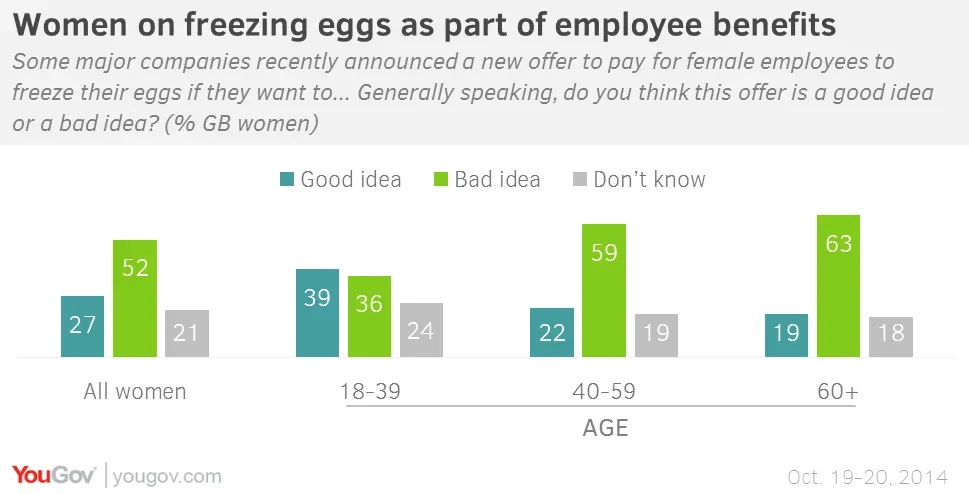Women ages 18 to 39 are more likely to think it’s a good idea for companies to offer to pay for female employees to freeze their eggs
Recently some major companies in the United States announced plans to make a novel offer to female employees: if you decide to wait a few years before starting a family, we’ll pay to have your eggs frozen to take the pressure off the 'biological clock' and make it easier to have children later in life. Some UK firms have already expressed an interest in making a similar change to employee benefits.
In a new poll, YouGov finds that most women (52%) think it is a bad idea, while just 27% think it’s a good one. Looking deeper into the numbers, however, younger women – those most likely to be able to take advantage of the perk – are much more supportive than those in the older age groups.
Women ages 18 to 39 marginally think the egg freezing scheme is a good idea (39%) rather than a bad one (36%). By contrast, women ages 40 and older say the idea is bad rather than good by a margin of around three to one. The difference between those ages 40 to 59 (22% good, 59% bad) and those ages 60 and older (19% to 63%) is relatively small.

Men tend to be slightly less opposed, with just 43% calling it a bad idea and 30% calling it a good one.
Advocates of the approach say the offer would give women the freedom to establish their careers free from the pressure of starting a family. However, others argue that offering to freeze women’s eggs could encourage them to put off childbearing and divert attention from other potential benefits for working mothers, like paid leave and childcare.
Notably, though young women may be more open to the extra benefit, that doesn’t mean they aren’t sceptical of the motives behind it. In fact, 51% of women ages 18 to 40 say they think the offer is “designed more to benefit the companies” rather than the women who take part. Only 6% in this group say it’s aimed at mostly benefiting women and 23% say it’s aimed at helping both women and the companies equally.
PA images







